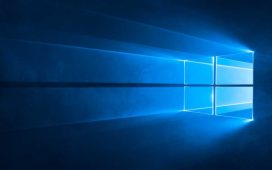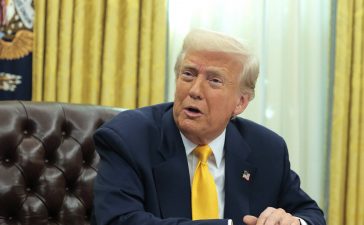The first landmark tech antitrust trial of the century, The United States of America v. Google LLC, is winding down, with the last witness finishing testimony this week. What could be at stake in District Court Judge Amit Mehta’s final decision, expected next year, is nothing short of “the future of the internet,” as Kenneth Dintzer, deputy director in the Department of Justice’s civil division, argued on the first day of the trial.
In the two-month-long trial, the DOJ and 14 states argued that Google has unlawfully monopolized the markets for general search services, search advertising, and general search text advertising by entering into exclusive default search engine contracts with device makers and app providers. The government argues that these contracts have enabled Google to garner a 90% search market share, freeze out competition, and stifle innovation.
Conversely, Google argued that it won its default search contracts by providing a superior product enhanced by ongoing innovation and highly skilled engineers. Moreover, Google said consumers go out of their way to select Google even when given a choice, and rivals who failed to gain market share missed the boat in developing robust competition.
Of all the default search contracts examined during the trial, none was more important than the deal Google landed to become the search engine powering Apple’s products, particularly the iPhone. The Apple default contract might well become Google’s Achilles heel as Judge Mehta weighs the pros and cons of the evidence before him.
Google pays its rival billions every year
As Eddy Cue, Apple’s senior vice president of services, testified during the trial, Apple first struck up an internet service agreement (ISA) with Google to use its search engine in Apple products in 2002 and then renewed it again in 2016 in negotiations with Google CEO Sundar Pichai. Under the deal, Apple successfully negotiated payment from Google for a share of the search revenue Google generated on its platforms.
Testifying on behalf of Google, University of Chicago professor Kevin Murphy inadvertently revealed that Google pays Apple 36% of its revenue from search advertising made through Apple’s Safari browser. Although both Google and Apple sought to keep secret much of the data, exhibits, filings, and testimony of the trial, with Judge Mehta initially conceding to the tech giants’ requests for secrecy only to largely relent under criticism, both Apple and Google fought particularly hard to keep this revenue share data secret. Google argued that revealing information about its deal with Google “would unreasonably undermine Google’s competitive standing in relation to both competitors and other counterparties.”
Although the trial did not reveal how much search advertising revenue Google generates from Safari, Google executives testified that in 2021, the company paid $26.3 billion for default search engine status across web browsers and mobile phones. One source estimates that the lion’s share of this figure, or between $18 billion and $20 billion, went to Apple, which has an envious share of the highly desired mobile market in the US.
Pichai later confirmed the 36% figure in another antitrust trial in which Epic Games has accused the search giant of monopolistic practices through its app store. Although he didn’t specify a figure, he said that Apple got the majority share of the $26.3 billion.
“I thought that the Apple-Google deal would receive the most scrutiny in the trial, and that has turned out to be true,” said economist Shane Greenstein, Martin Marshall Professor of Business Administration at Harvard Business School. “There’s quite a few billion dollars changing hands every year to make Google the default search engine on the Apple phone.”
“I think a lot of people were looking at that and saying, there are two things really suspicious about this, and it’s been very interesting to try to see Google wiggle their way out of it,” Greenstein said. One suspicious aspect is that Google has locked up default contracts with many top players in the internet and mobile ecosystem.
“It doesn’t look so suspicious if Google had only done one of these [deals] with, say, Verizon,” Greenstein said. “I don’t think they’d be in court. But they’ve done it with basically every major player, and that raises the suspicion that it’s very difficult for anybody else to break in as a search engine.”
Greenstein said the other more suspicious thing about the deal is that Apple and Google are competitors. “Apple has an operating system, has a Play Store, and makes its own hardware. Google organizes Android, which is the operating system, and then enables it to be deployed on lots of other hardware. Google has its own Play Store. Google has an operating system that competes with the whole system that Apple organizes. When you go to the store to buy a smartphone, that’s the choice you’re making.”
“It’s just really suspicious in antitrust law when one firm who competes with another pays the firm they’re competing with to do something. That’s not the way competition’s supposed to work. Competitors aren’t supposed to pay one another to do something.”
During his testimony, Apple’s Cue said that his company chose Google because “there was nobody out there in terms of search engines that was better than Google,” echoing Google’s argument that it has won its default search contracts on its superiority. But Greenstein asked that if it’s in Apple’s interest to have a good user experience, “why does Google have to pay them?”
Moreover, according to Greenstein, the argument that Google won its market share through merit is a timeworn argument in antitrust law. “I’ve got to say this looks like a lot of other antitrust trials, where on the one hand, the defendant says, look at the market as it is now. We’re the best. It’s in the users’ interest,” he said. “Google’s in this very funny place in these kinds of arguments because they are going down a path well-trodden by the antitrust defense.”
Late in the trial, former Google executive Jamie Rosenberg raised a rationale for why Google should pay for default search: to innovate and support the Android ecosystem. By sharing revenue with smartphone makers and mobile carriers, Google can ensure these partners have the resources to support new Android products, maintain them, and continue to offer security updates, even though Google doesn’t place any conditions on its partners regarding what they should do with their payments.
What’s ahead for the Google search trial?
If Google continues to maintain its dominant share in search, it could exercise its market power in new and emerging technology, such as the swiftly evolving integration of AI in search, as Microsoft CEO Satya Nadella said he feared when testifying on behalf of the government.
Moreover, the barriers to entry for Google’s rivals will likely remain as high as ever. If Google holds a virtual lock on the search market, “even if you had a search engine like DuckDuckGo, why would you even bother to put money into it if you’re a venture capitalist, even though it’s this lucrative market?” Greenstein said.
The next step in the litigation is for Google and the government plaintiffs to summarize their cases and deliver closing arguments, which won’t likely happen until early 2024. Then Judge Mehta has a momentous decision to ponder as he develops his decision, which probably won’t be released until later in the year.
Copyright © 2023 IDG Communications, Inc.












